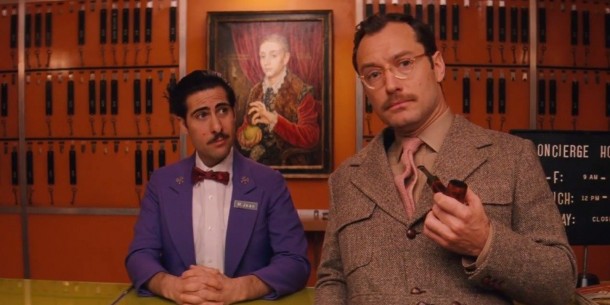
The big release this week is Wes Anderson’s highly anticipated The Grand Budapest Hotel
. The year is 1932 and the destination is Zubrowka, a fictional Eastern European republic on the cusp of war. Ralph Fiennes is Gustav H, the dashing and devoted concierge within the republic’s most exclusive establishment, the legendary Grand Budapest Hotel.
Renowned for his refined tastes and total commitment to preserving the hotel’s untarnished prestige, he also has a reputation for seducing the exceedingly wealthy and elderly female clientele. But when one of his most popular patrons, Madame D (Tilda Swinton), dies in mysterious circumstances, bequeathing him a priceless renaissance painting in her will, her embittered son Dmitri (Adrian Brody) accuses Gustav of foul play. Recruiting Zero (Tony Revolori) the new lobby boy as his accomplice, Gustav decides to steal the painting, precipitating a succession of picaresque adventures as he desperately tries to clear his name.
Over the course of eight feature films, making his feature length debut with Bottle Rocket in 1996, Wes Anderson has become one of the most visually distinctive directors of his generation. Whether you like his films or not, he certainly knows how to fill a frame. The Grand Budapest Hotel is as quirky and Andersonesque as you could possibly get, to the point that it sometimes feels like the cinematic equivalent of a greatest hits compilation album.
The yellow sub headings in a Future Bold font, the strategically placed vintage stationary, the dry delivery of peculiar dialogue, the meticulously designed palette of primary colours, and all the other Andersonics we’ve come to recognise are all intact and properly in place. It’s an incredibly well tailored made to measure experience for any gushing Anderson fan, although one that’s just beginning to fray slightly in places. But although Anderson isn’t exactly treading new ground, The Grand Budapest Hotel is very enjoyable cartoonish romp and a heartfelt, good old-fashioned ripping yarn from a unique director in extremely comfortable shoes.
Also out this week is the sequel to 300 (2006) entitled 300: The Rise of an Empire, a green screen 3D extravaganza in which a power mad Persian army marches on Athens, plus art doc Tim’s Vermeer gives a unique insight into the work and methods of celebrated Dutch master Johannes Vermeer. Gravity and cult classic The Big Lebowski (1998) get late night screenings, and there’s still a chance to catch The Lego Movie, The Book Thief, 12 Years a Slave, The Wolf of Wall Street, Dallas Buyers Club, Only Lovers Left Alive, and Nymphomaniac Volumes I & II. There’s never a dull moment at The Ritzy, Brixton.













